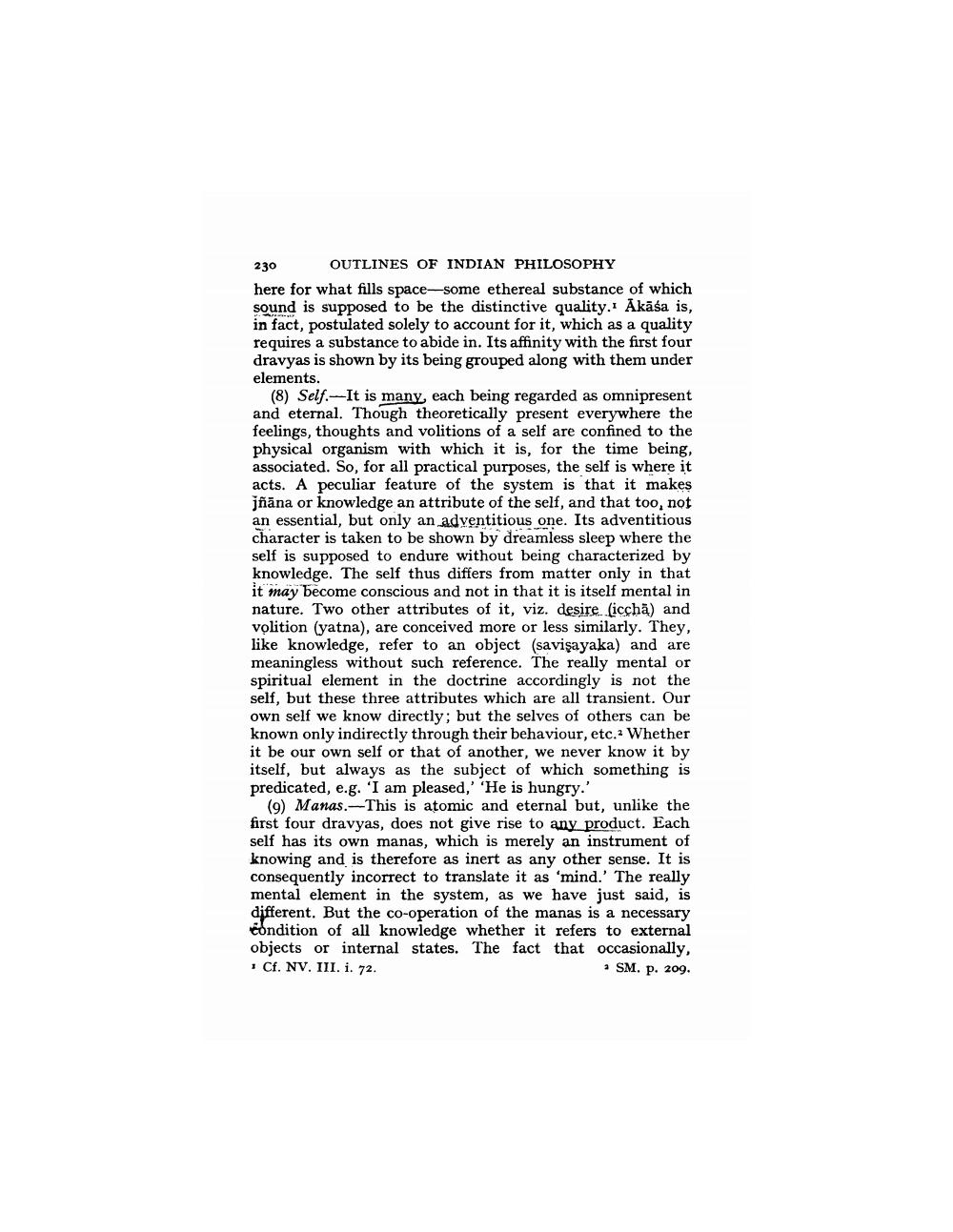________________
230
OUTLINES OF INDIAN PHILOSOPHY
here for what fills space-some ethereal substance of which sound is supposed to be the distinctive quality.1 Akāśa is, in fact, postulated solely to account for it, which as a quality requires a substance to abide in. Its affinity with the first four dravyas is shown by its being grouped along with them under elements.
(8) Self. It is many, each being regarded as omnipresent and eternal. Though theoretically present everywhere the feelings, thoughts and volitions of a self are confined to the physical organism with which it is, for the time being, associated. So, for all practical purposes, the self is where it acts. A peculiar feature of the system is that it makes jñāna or knowledge an attribute of the self, and that too, not an essential, but only an adventitious one. Its adventitious character is taken to be shown by dreamless sleep where the self is supposed to endure without being characterized by knowledge. The self thus differs from matter only in that it may become conscious and not in that it is itself mental in nature. Two other attributes of it, viz. desire (iccha) and volition (yatna), are conceived more or less similarly. They, like knowledge, refer to an object (savişayaka) and are meaningless without such reference. The really mental or spiritual element in the doctrine accordingly is not the self, but these three attributes which are all transient. Our own self we know directly; but the selves of others can be known only indirectly through their behaviour, etc. Whether it be our own self or that of another, we never know it by itself, but always as the subject of which something is predicated, e.g. 'I am pleased,' 'He is hungry.'
(9) Manas.-This is atomic and eternal but, unlike the first four dravyas, does not give rise to any product. Each self has its own manas, which is merely an instrument of knowing and is therefore as inert as any other sense. It is consequently incorrect to translate it as 'mind.' The really mental element in the system, as we have just said, is different. But the co-operation of the manas is a necessary condition of all knowledge whether it refers to external objects or internal states. The fact that occasionally, 1 Cf. NV. III. i. 72. 2 SM. p. 209.




